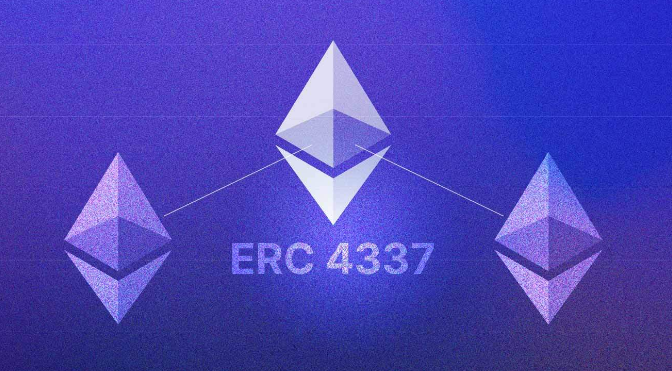
As crypto payments, transfers and DeFi becomes more mainstream, the need for user-friendly and secure user interface become critical for the adoption. From the viewpoint of security, the recommended option is the self-custody, meaning – managing own cryptographic keys. Unfortunately, dealing with digital assets in self-custodial wallets has always been challenging for non-technical users, with risks such as loss of seed phrases or theft by hackers.
What is Ethereum Account Abstraction?
The term "account abstraction" is confusing for non-technical users, and Ethereum Foundation security researcher Yoav Weiss suggests replacing it with a more descriptive term "smart accounts". Smart accounts are Ethereum accounts that have smart contracts attached to them. Currently there are two types of Ethereum accounts: with smart contracts – for different protocols, DApps, etc., and without smart contracts – for ETH payments and transfers. The idea of smart accounts is to equip the second group with smart contracts that will contain basic functions for used for the wallets.
Ethereum ERC-4337

There have been various Ethereum Improvement Proposals (EIPs) to add "smart accounts" to the protocol before, however, they did not receive enough support. Also, possibly, implementing them would have taken attention away from more critical upgrades such as the Merge. Now, when Ethereum is a PoS chain, it seems that the project community, inspired by their leader, returned back to the basics – the user experience.
A corresponding Ethereum’s standard, ERC-4337, was proposed by Vitalik Buterin and others back in September 2021. It took years to develop and was recently introduced at WalletCon in Denver.
The following functionality of the basic accounts will be now be abstracted:
- Validation
- Execution
- Gas payment
So, the proposal allows smart accounts to take advantage of programmable validation such as two-factor authentication, biometrics, session keys for playing blockchain games, decentralized "social" recovery of wallets; programmable execution – autopay bills and subscriptions, monthly spending limits, and also programmable gas payment - many more features.
Besides Ethereum, other chains EVM compatible chains such as Polygon, Optimism, Arbitrum, BNB Smart Chain, Avalanche, and Gnosis Chain can also use smart accounts.
Benefits of Smart Accounts
Observers think that the most important promise of smart accounts is the easier way for setting up a wallet. Until now, keeping any cryptocurrency in a wallet has been more like hiding cash under your mattress than it has been using a sophisticated financial service. With smart accounts users can onboard into the decentralized world of crypto without worrying about complicated seed phrases or understanding the technical process of setting up a wallet. For example, users can open a smart account using a fingerprint or face scanner on mobile phone whereby cryptographic keys are automatically stored on the phone's hardware security module.
Other important benefits include the ability to set up monthly spending limits, two-factor authentication, decentralized "social" recovery of wallets, autopay bills and subscriptions, automation of trading functions that might bring decentralized tools closer to their centralized counterparts.
"Gasless" transactions of smart accounts can drive commercial adoption. DApps now can "sponsor" gas fees for their users to drive seamless sales and onboarding.
There are concerns that implementing account abstraction will make Ethereum core protocol and wallets more complex, potentially introducing new bugs, attack vectors, and scams that can cause users to lose their cryptocurrency. Also some of the existing smart contracts will need to be updated to support the new feature.
Nevertheless, account abstraction is set to revolutionize how people use crypto wallets, making them more user-friendly and secure, and this is a move in a right direction for the industry. We will keep observing how this unveils.

